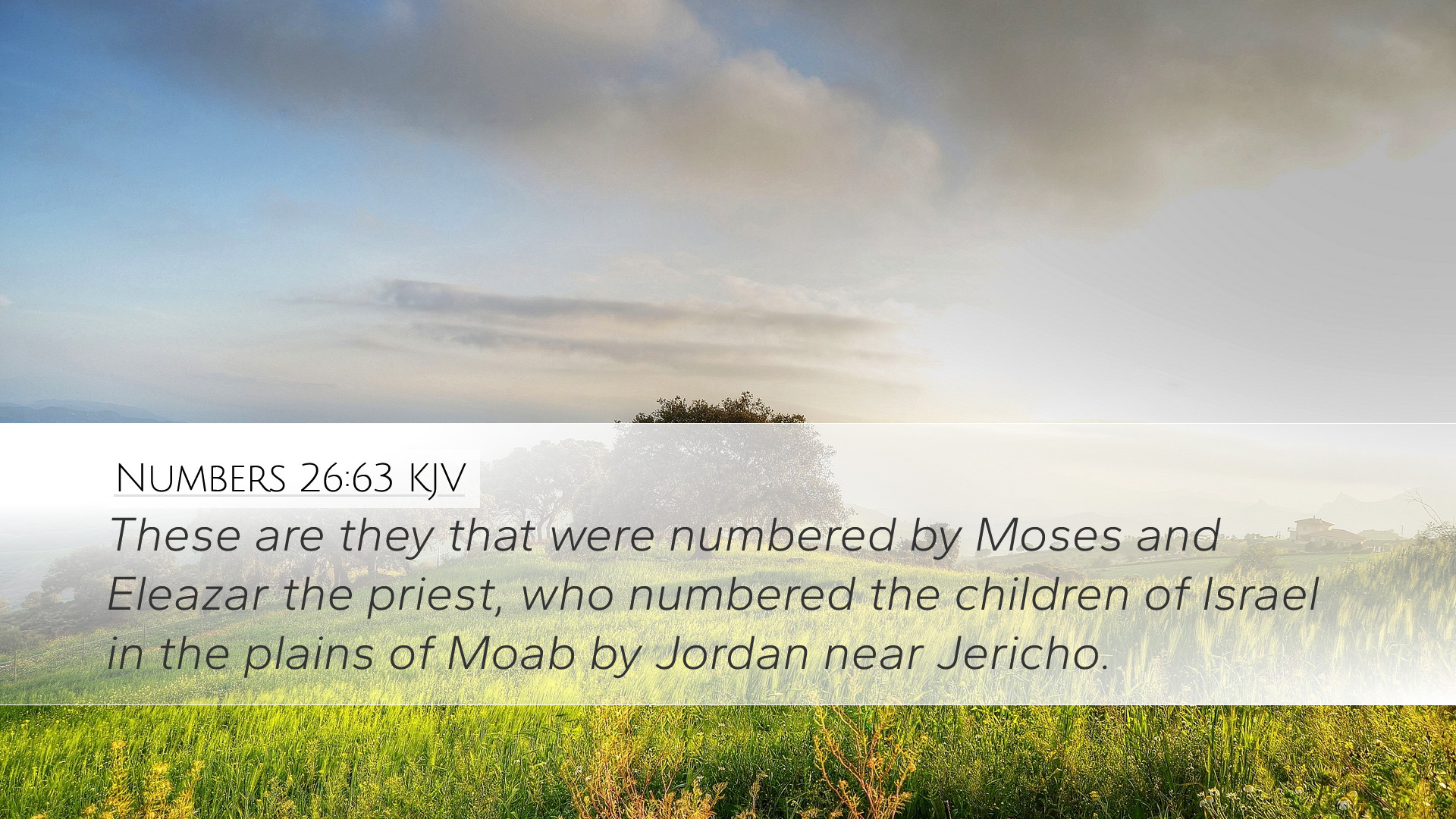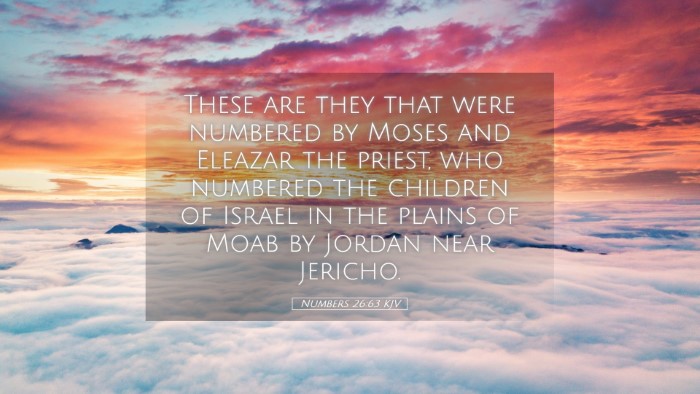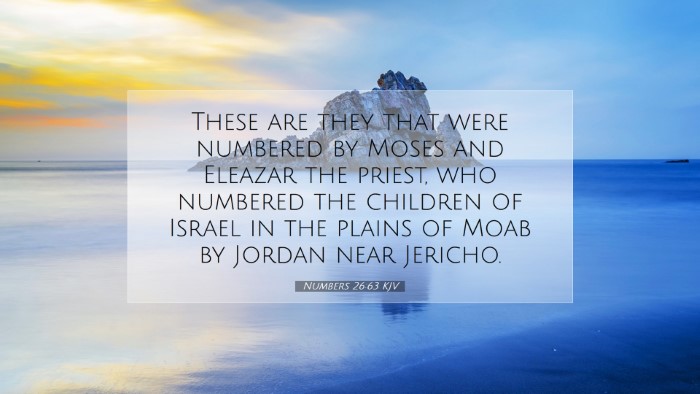Commentary on Numbers 26:63
Verse: Numbers 26:63 — "These are those that were numbered by Moses and Eleazar the priest, who numbered the children of Israel in the plains of Moab by Jordan near Jericho."
Numbers 26:63 serves as a crucial reference point in the broader narrative of the Israelites during their wandering in the wilderness. This verse marks the documentation of the census taken under the leadership of Moses and Eleazar, which holds significant theological and historical implications. Below is a comprehensive commentary that draws upon insights from public domain scholars including Matthew Henry, Albert Barnes, and Adam Clarke.
Context and Significance
The context of Numbers 26 is vital; it occurs after the death of the previous generation who were condemned to die in the wilderness due to their disbelief. This census reveals God's faithfulness to His promises and highlights the transition from one generation to the next.
1. The Purpose of the Census
-
Divine Instruction: The enumeration of the people served as an act of obedience to God's command. As noted by Albert Barnes, the census reaffirms that God is actively involved in the details of His people’s lives.
-
Preparation for Conquest: Matthew Henry emphasizes that this numbering was also a preparatory step for the invasion of Canaan, depicting a new chapter for the Israelites that necessitated organization and strength.
2. The Role of Moses and Eleazar
This verse highlights the collaborative leadership between Moses and Eleazar. As noted by Adam Clarke, this partnership underscores the transition of priestly duties from Aaron to Eleazar, solidifying the Levitical heritage's importance in Israel’s governance.
Leadership Transition
The mention of Eleazar also signifies the providence of God in establishing a successor who would guide the nation spiritually and administratively despite Moses nearing the end of his journey. It stresses the continuity of God's work in the lives of His people.
Theological Implications
The census and its accompanying narrative hold rich theological significance. It reflects on themes of identity, community, and God’s covenantal promises.
1. Identity of God’s People
The act of numbering the Israelites reminds believers of their identity as God's chosen people. According to Matthew Henry, it serves as a reminder that individual lives are counted and valued by God, which is a theme that resonates throughout Scripture.
2. God’s Covenant Faithfulness
This verse exemplifies God's faithfulness in fulfilling His promise to multiply the descendants of Abraham. Albert Barnes observes that despite trials, God remains steadfast in His covenant obligations, a promise that extends through generations.
Lessons for Modern Believers
The insights from Numbers 26:63 teach significant lessons for contemporary Christians.
1. God’s Involvement in Our Lives
Just as God was intricately involved in the lives of the Israelites, He remains so in ours. This understanding invites believers to live with the awareness that they are known and counted by God.
2. The Importance of Leadership
Effective leadership is pivotal in spiritual communities. The joint leadership of Moses and Eleazar can encourage pastors and church leaders to cultivate partnerships in their ministry efforts, emphasizing teamwork and shared responsibilities.
3. Community and Identity
Believers are called to reflect on their identity within the body of Christ. The communal aspect of Israel’s census reminds contemporary Christians to engage actively in their faith communities as essential members of God’s family.
Concluding Reflections
In conclusion, Numbers 26:63 encapsulates a significant moment in Israel's history that serves both as a reminder of God’s faithful leadership and the importance of community identity among His people. Scholars and followers alike are called to reflect deeply on the implications of such passages, embracing their rich theological heritage while being encouraged to apply these lessons in their current walk with God.


